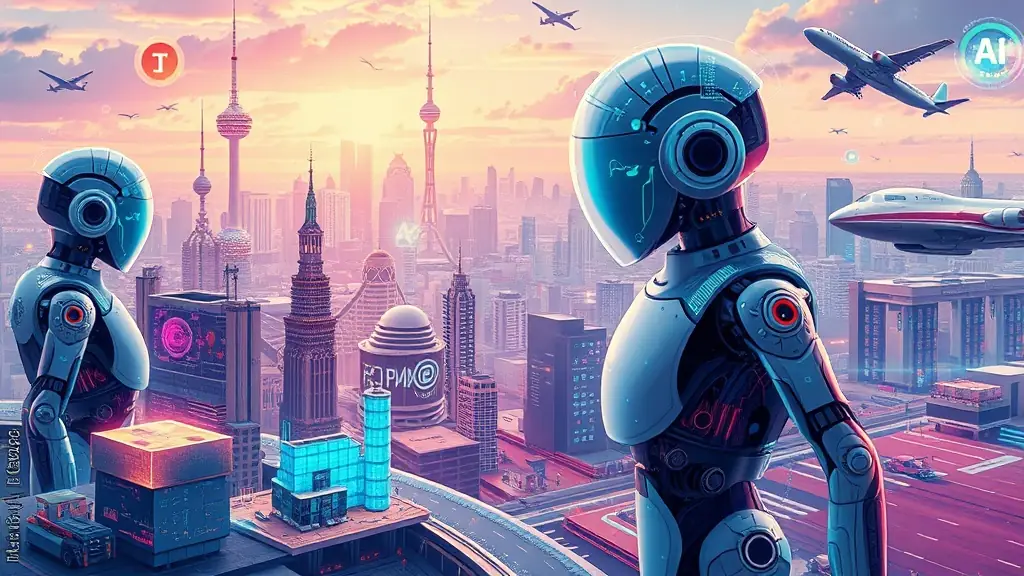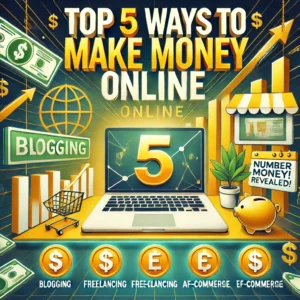Artificial intelligence (AI) isn’t just reshaping industries—it’s redefining how we think about work, progress, and innovation. From automating tedious tasks to creating entirely new fields, AI offers immense opportunities. But with great potential comes equally significant challenges. Let me share my take on navigating this AI-driven world, including how I’ve embraced tools like ChatGPT to learn, grow, and create new opportunities.
Opportunities in AI: Transforming the World Around Us
AI’s ability to analyze vast amounts of data and derive actionable insights is revolutionizing industries. Whether it’s optimizing business strategies or delivering personalized customer experiences, AI is driving efficiency like never before.
In healthcare, for example, AI is advancing rapidly, helping to predict diseases, create personalized treatment plans, and even develop new drugs faster than traditional methods. It’s not just a tool—it’s becoming a partner to medical professionals, enhancing their ability to save lives and improve patient outcomes.
Beyond healthcare, fields like finance, marketing, and logistics are also leveraging AI to gain a competitive edge. By automating repetitive tasks and improving decision-making, these industries are accelerating their growth and opening doors to innovation.
My Personal Take: AI as a Daily Companion
For me, AI isn’t just a professional tool—it’s part of my everyday life. I use ChatGPT almost daily, whether it’s for learning new programming languages, brainstorming side jobs, or even interpreting dreams (yes, it’s that versatile!).
Here’s how I integrate AI into my life:
- Learning to Code: ChatGPT has been my go-to resource for understanding and experimenting with new programming languages. It’s like having a patient tutor available 24/7.
- Exploring Business Ideas: From generating ideas for side jobs to drafting plans for new ventures, AI has helped me unlock creative possibilities I hadn’t considered before.
- Personal Exploration: Even for interpreting dreams, ChatGPT provides unique perspectives that inspire self-reflection.
AI has become more than just a tool—it’s like a partner in growth, creativity, and problem-solving.
New Jobs: Opportunities in the AI Era
AI isn’t just about replacing jobs—it’s about creating new ones. Roles like AI specialists, data scientists, and machine learning engineers are in high demand. But it doesn’t stop there.
One of the most exciting developments is the rise of AI prompters—individuals skilled in crafting effective prompts to guide AI systems. Whether it’s writing natural language queries or designing workflows for AI tools, this new role is shaping how we interact with technology.
AI is also democratizing opportunities. With the right training, anyone can learn to use AI tools effectively, making high-level innovation accessible to people from all walks of life. It’s about embracing the changes and adapting to the evolving job market.
Challenges: The Roadblocks to Overcome
While AI promises a brighter future, it also brings challenges that can’t be ignored.
- Data Privacy and Security: AI thrives on data, but ensuring that data is protected and used responsibly is critical. Without trust, the benefits of AI could be overshadowed by fear.
- Ethical Concerns: From biased algorithms to the misuse of AI in surveillance, organizations must prioritize ethical AI practices to avoid harm.
- Job Displacement: While AI creates new jobs, it also disrupts traditional roles. Training and upskilling are essential to help workers transition into new opportunities and prevent widening inequality.
For me, addressing these challenges starts with awareness and proactive action. Businesses and individuals alike need to be open to learning, adapting, and holding themselves accountable in this AI-driven world.
Building Resilience in an AI Future
I see the rise of AI as an opportunity to grow—not just technologically, but as individuals and societies. By focusing on innovation, ethics, and adaptability, we can navigate the complexities of AI and create a future that benefits everyone.
It’s not about fearing what AI might take away—it’s about embracing what it can give us: better healthcare, smarter workflows, and jobs we’ve never imagined before. The key is to approach this future with a resilient mindset, ready to learn, adapt, and thrive.
Final Thoughts
AI is more than just a tool—it’s a catalyst for change. The opportunities are vast, from breakthroughs in medicine to entirely new careers, and tools like ChatGPT make it personal and accessible. Whether you’re learning to code, interpreting dreams, or brainstorming your next big idea, AI is here to empower you.
The challenges are real—ethics, privacy, and job transitions—but they’re not insurmountable. With the right mindset, we can overcome them and create a future where AI helps us grow in ways we’ve only begun to imagine.
For me, the future of AI is personal. It’s about using this incredible technology not just to solve problems but to create opportunities that empower people and improve lives. That’s the vision I’m working toward—and I believe it’s a future worth building together.




